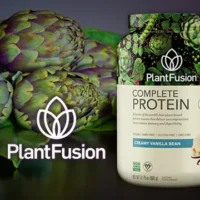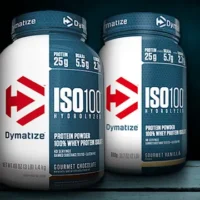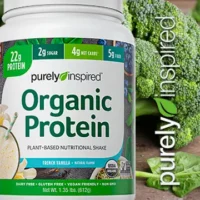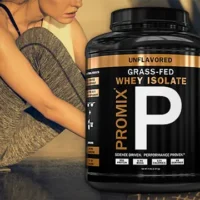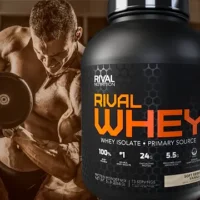BACK
How to choose a Vegan Protein Powder
Protein powders come from a variety of plant sources to provide vegans with an array of great options, so which is right for you?
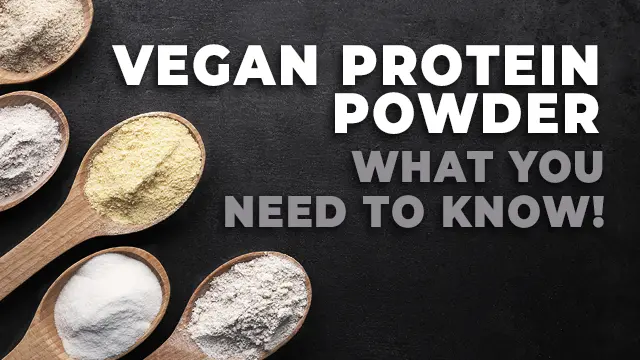
Protein powders come from a variety of plant sources to provide vegetarians and vegans with an array of great options. However, the quality and essential amino acid content can vary greatly between sources. So it’s important to know what’s in your protein powder to gain the most benefit from your protein intake.
Vegan protein powders are an excellent option to boost protein intake for vegetarians, vegans, lactose intolerant or simply want to cut back on animal-sourced protein. Animal proteins such as meat, fish, eggs, and dairy are complete proteins that contain a good level of all essential amino acids. However, plant-based protein sources are often incomplete or do not contain a good balance of all of the essential amino acids. That does not mean they are not excellent sources when used correctly to augment a balanced diet.
The key to a complete vegan protein is to use blended products which contain protein from more than one source. The combination of rice and pea-sourced protein powders has been shown to provide an excellent balance of all essential amino acids in high quantity and in a form that is easy to digest. This combination offers the best source of amino acids when compared with sources such as soy and hemp.
Vegan protein powders are an excellent option to boost protein intake for vegetarians, vegans, lactose intolerant or simply want to cut back on animal-sourced protein. Animal proteins such as meat, fish, eggs, and dairy are complete proteins that contain a good level of all essential amino acids. However, plant-based protein sources are often incomplete or do not contain a good balance of all of the essential amino acids. That does not mean they are not excellent sources when used correctly to augment a balanced diet.
The key to a complete vegan protein is to use blended products which contain protein from more than one source. The combination of rice and pea-sourced protein powders has been shown to provide an excellent balance of all essential amino acids in high quantity and in a form that is easy to digest. This combination offers the best source of amino acids when compared with sources such as soy and hemp.
EVERYTHING YOU NEED TO KNOW: VEGAN PROTEIN POWDERS
Not all vegan protein powders are made equal. So we have given given you some quick facts to help make the choice a little easier.

PEA PROTEIN POWDER
Pea Protein Powder is generally made from yellow split peas. These provide a protein powder that is fat, gluten, and cholesterol free, but also a great source of fiber. Pea protein is hypoallergenic for those that suffer from common food intolerance or allergies. Pea protein is very high in all amino acids apart from methionine, of which its deficient. This makes rice protein an excellent product to blend with pea protein, as it is very high in the amino acid methionine which pea protein is lacking.
Pea protein is an excellent source for those using protein powder for weight loss or to aid in building lean muscle. We recommend seeking a protein powder that is organically sourced from non-GMO peas.
Pea protein is an excellent source for those using protein powder for weight loss or to aid in building lean muscle. We recommend seeking a protein powder that is organically sourced from non-GMO peas.

RICE PROTEIN POWDER
Rice protein powder is sourced from brown rice and is gluten and fat-free. It is also very low in carbohydrate content and is easy to digest. It is high in most amino acids but is quite low in lysine. So using rice protein powder as a sole source of protein supplementation is not ideal. This is where combining rice protein with pea protein makes an excellent vegan source for protein powder. Pea protein is an ideal complement to rice protein as it completes the lacking amino acid content of rice protein.
The big bonus benefit of rice protein is that in addition to protein it contains good levels of vitamins, fiber, and folate.
The big bonus benefit of rice protein is that in addition to protein it contains good levels of vitamins, fiber, and folate.
SOY PROTEIN POWDER

Soy protein powder is made from soybeans. This is a popular plant-based source, as it’s a complete protein containing all the essential amino acids. This makes it a similar alternative to animal-based protein powders like whey and casein. Soy protein is an excellent source for muscle repair and growth after exercise. Soy also contains isoflavones, which have been shown to reduce the risk of cardiovascular disease and some cancers.
However, be aware that soy has been shown to alter testosterone levels in high doses which can particularly affect men. Soy protein powders are also often sourced from genetically modified crops. If you already have a high soy-based diet, we would recommend an alternative protein source as a protein powder supplement. If not, soy protein powder can make an excellent whole-protein supplement, especially for post-workout muscle repair and growth.
However, be aware that soy has been shown to alter testosterone levels in high doses which can particularly affect men. Soy protein powders are also often sourced from genetically modified crops. If you already have a high soy-based diet, we would recommend an alternative protein source as a protein powder supplement. If not, soy protein powder can make an excellent whole-protein supplement, especially for post-workout muscle repair and growth.
HEMP PROTEIN POWDER

Hemp protein powder is another excellent source worth considering. It’s a unique and complete protein source that includes fatty acids omega-3 and omega-6. This gives it a big advantage over other plant-based protein sources.
However, while hemp protein powder is a complete protein, its essential amino acid content is lower than other plant sources. It is also harder to digest hemp protein when compared with sources such as rice or pea. Additionally, this protein can be expensive as there are limited countries that allow hemp propagation due to legislation.
However, while hemp protein powder is a complete protein, its essential amino acid content is lower than other plant sources. It is also harder to digest hemp protein when compared with sources such as rice or pea. Additionally, this protein can be expensive as there are limited countries that allow hemp propagation due to legislation.
PRODUCT SELECTION
When selecting a product to purchase you should consider the nutritional content. Always check the nutritional facts on your product when making a comparison.
- SERVING SIZE
Consider the protein content per serving size. One product with a scoop size of 30grams may contain 25grams of protein, but another product may require two 30gram scoops for the same protein content. - FILLER CONTENT
Check the ingredients for filler product content. Ensure that the protein source is listed as the first ingredient, meaning it is the highest content ingredient in the product. Also check the carbohydrate content of your product, especially if you are using protein to aid in weight loss.
Remember not all added ingredients are bad. Some are needed to keep the product stable and fresh, while many products also contain added vitamins and minerals. - TASTE
Consider the taste of your product. Where possible you should select a small quantity to trial before buying in bulk. This will ensure you have a product which meets the needs of your taste buds as well! - PRICE
To calculate the value of your product, divide the cost of your product by the volume of protein in your product. This should give a figure you can use to compare product value in order to get the best value supplement. You can multiply the protein content per serve by the total number of serves in a product if needed.
WE RECOMMEND!
We recommend a blend of pea and rice protein powder. Pre-blended products can be purchased, but you can also blend your own products if you wish. This will provide the most easily digestible, highest value, and most complete protein source with all the essential amino acids.
Popular Reviews
The content on this site has not been written, reviewed or endorsed by a medical professional. We assume no liability for the misuse of supplements and recommend you review the label of any product, as well as consulting with your health care professional.
We are a participant in the Amazon Services LLC Associates Program, an affiliate advertising program designed to provide a means for us to earn fees by linking to Amazon.com and affiliated sites.
We are a participant in the Amazon Services LLC Associates Program, an affiliate advertising program designed to provide a means for us to earn fees by linking to Amazon.com and affiliated sites.
© 2026 ProteinPowder.com
